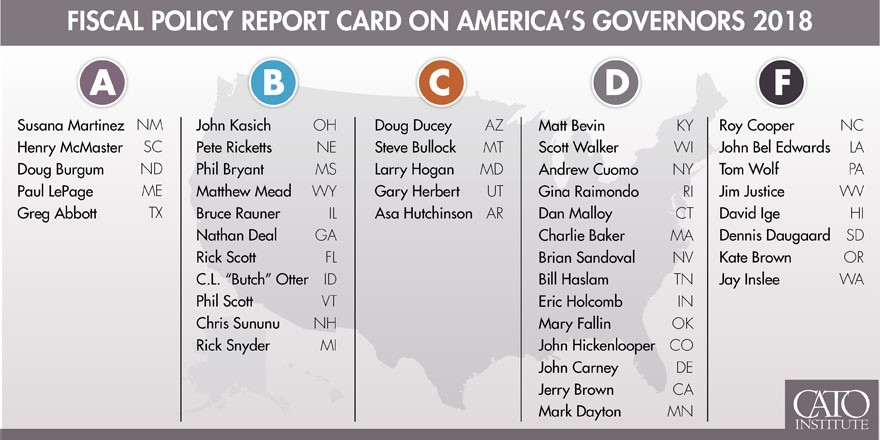The report from the Cato Institute measures the fiscal choices and fiscal policies of every governor in America by examining state budget actions dating back to 2016.
“Governors play a key role in state fiscal policy. They propose budgets, recommend tax changes, and sign or veto tax and spending bills. When the economy is growing, governors can use rising revenues to expand programs, or they can return extra revenues to citizens through tax cuts. When the economy is stagnant, governors can raise taxes to close budget gaps, or they can trim spending,” the report notes.
The report credited Bryant for signing business and individual tax cuts into law in 2016. This includes the phasing out of the $260 million corporate franchise tax. It also cut taxes for self-employed individuals and cut the bottom individual and corporate income tax rates from 3 percent to zero.
The report also noted that the state general fund budget has been flat over the past couple years. Further, state government employment has been trimmed. Only four states have seen greater reductions in per capita spending during this time period than Mississippi.

“This report grades governors on their fiscal policies from a limited-government perspective. Governors receiving an A are those who have cut taxes and spending the most, whereas governors receiving an F have raised taxes and spending the most. The grading mechanism is based on seven variables, including two spending variables, one revenue variable, and four tax-rate variables,” the report adds.
Bryant’s grade was best among our neighbors, topping Gov. Asa Hutchinson (R-AR), who received a C, Gov. Bill Haslam (R-TN), who received a D, and Gov. John Bel Edwards (D-LA), who received an F. The report excluded Alabama Gov. Kay Ivey, a Republican, because of her short time in office.
While Mississippi may be headed in the right direction, our fiscal freedom has long trailed all of our neighbors. Fiscal policy includes state and local taxation, government consumption, investment, employment, and debt. Essentially, how much are you being taxed and how much of our economic activity is controlled by government? In Mississippi, our overall tax burden is a bit above average nationally. And government employment and consumption are far higher than average.
Why does this matter? Because fiscal policy often dictates domestic migration and economic growth. And people are moving to the freest states, which also happen to have the greatest opportunity, an availability of good jobs, and a reasonable cost-of-living.
Calling for a limited, or smaller, government is not a conservative taking point. It is a principle that encourages freedom and prosperity.